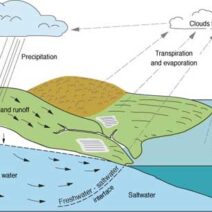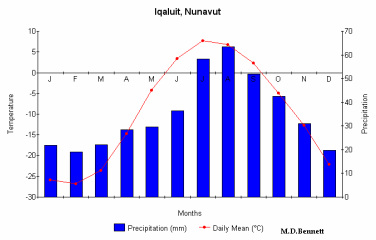Global warming remains one of the most pressing challenges of our time. Increasingly observed temperature anomalies, melting polar ice, rising sea levels, and extreme weather events underscore a dire reality. Despite the overwhelming evidence, there still exists a palpable skepticism regarding the efficacy of individual and collective environmental actions to combat this crisis. This discourse seeks to elucidate the multifaceted relationship between environmental actions and their effectiveness in mitigating global warming, culminating with actionable strategies for individuals.
Firstly, understanding the concept of global warming is pivotal. It is essentially the gradual increase in Earth’s average temperature due to the accumulation of greenhouse gases (GHGs) in the atmosphere, primarily carbon dioxide, methane, and nitrous oxide. These emissions stem predominantly from anthropogenic activities such as fossil fuel combustion, deforestation, and industrial processes. The resultant greenhouse effect traps heat, leading to a cascade of detrimental environmental impacts.
One common observation is the imperative for systemic change over individual action. Advocates often point to the gravitational influence of corporations and national policies in driving emissions. Indeed, large-scale emitters account for a disproportionate share of global pollution. The argument posits that while individual actions, such as reducing waste or using public transport, are commendable, they pale in comparison to the massive carbon footprints of major industries. Consequently, it is easy to perceive personal efforts as futile in the gargantuan struggle against climate change.
However, a nuanced exploration reveals that individual actions are not merely inconsequential but can indeed sow the seeds for broader societal transformation. Everyday choices generate collective momentum. For instance, when communities adopt sustainable practices, they can influence local policy decisions and alter market dynamics. The proliferation of renewable energy sources and the surge in electric vehicle adoption exemplify how consumer demand can catalyze systemic change.
Further, environmental action functions on multiple levels: it is deeply interspersed with culture, economy, and politics. Individual or grassroots movements can drive awareness and education, leading to shifts in public opinion. History has shown that social movements can inspire legislative reforms; consider how the environmental activism of the late 20th century propelled global agreements like the Kyoto Protocol and the Paris Agreement. These treaties embody the larger mobilization catalyzed by local and individual actions.
Moreover, an individual’s engagement in environmental stewardship can cultivate a sense of agency. It empowers citizens, making them stakeholders in the fight against climate change. In addition to personal satisfaction, such involvement can seed communal resilience, fostering adaptation strategies that enhance socio-environmental stability. Communities worldwide are resiliently adapting by integrating sustainability into their frameworks and recognizing the intrinsic value of nature.
Understanding what individuals can do is crucial. Many actions, while small individually, multiply exponentially when aggregated. Here are some impactful steps:
- Reduce, Reuse, and Recycle: Adopting a lifestyle that minimizes waste reduces landfill reliance and conserves resources. Emphasizing recycling and reusing materials can significantly decrease carbon footprints. Certain materials, such as plastics, when recycled, require considerably less energy than when produced anew.
- Conserve Energy: Simple measures, such as switching off lights when leaving a room, using energy-efficient appliances, and optimizing heating and cooling systems, can lead to substantial energy savings. Utilizing renewable energy sources like solar panels can also mitigate dependence on fossil fuels.
- Advocate for Policy Change: Engaging with local representatives and advocating for environmentally friendly regulations can lead to substantial shifts in governance. Participation in town hall meetings and joining environmental groups can amplify one’s voice and influence.
- Support Sustainable Practices: Purchasing sustainably sourced products bolsters eco-conscious companies and encourages others to adopt similar practices. Choosing local produce supports regional economies and minimizes the carbon footprint associated with transporting goods.
- Educate Yourself and Others: Staying informed about climate science, and sharing knowledge within social circles can catalyze larger discussions about environmental issues. Grassroots education is pivotal in shaping public discourse.
- Participate in Carbon Offset Programs: Engaging in initiatives that offset carbon footprints by supporting projects like reforestation or renewable energy installations can amplify the impact of one’s personal efforts.
- Embrace Sustainable Transportation: Walking, biking, carpooling, or using public transit significantly reduces greenhouse gas emissions. In urban settings, promoting alternatives to personal vehicles can contribute to healthier air quality and lower traffic congestion.
Furthermore, consider the psychological dimension of activism. Engaging in environmental initiatives fosters a sense of community, enhancing mental health and creating a shared purpose. It can counter feelings of helplessness often associated with climate change paralysis. Individuals united in a common cause can amplify their impact and encourage each other to persist in the face of adversity.
In conclusion, while the challenge of global warming appears monumental, recognizing the role of personal and collective action clarifies the pathway forward. Individual measures—far from being insipid gestures—are vital building blocks that can engender substantial systemic changes. The conundrum lies not in the insignificance of individual actions but rather in understanding their cumulative power. By embracing sustainable practices, advocating for change, and fostering educational discourse, everyone can contribute to the larger fight against global warming. Engaging with this crisis is not merely a matter of environmental necessity but a profound moral imperative, paving the way for a sustainable future.







